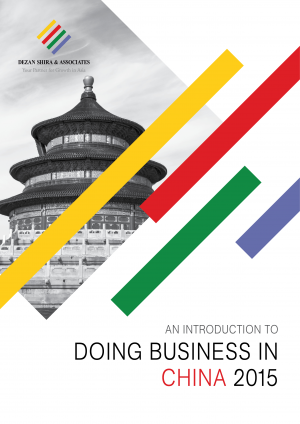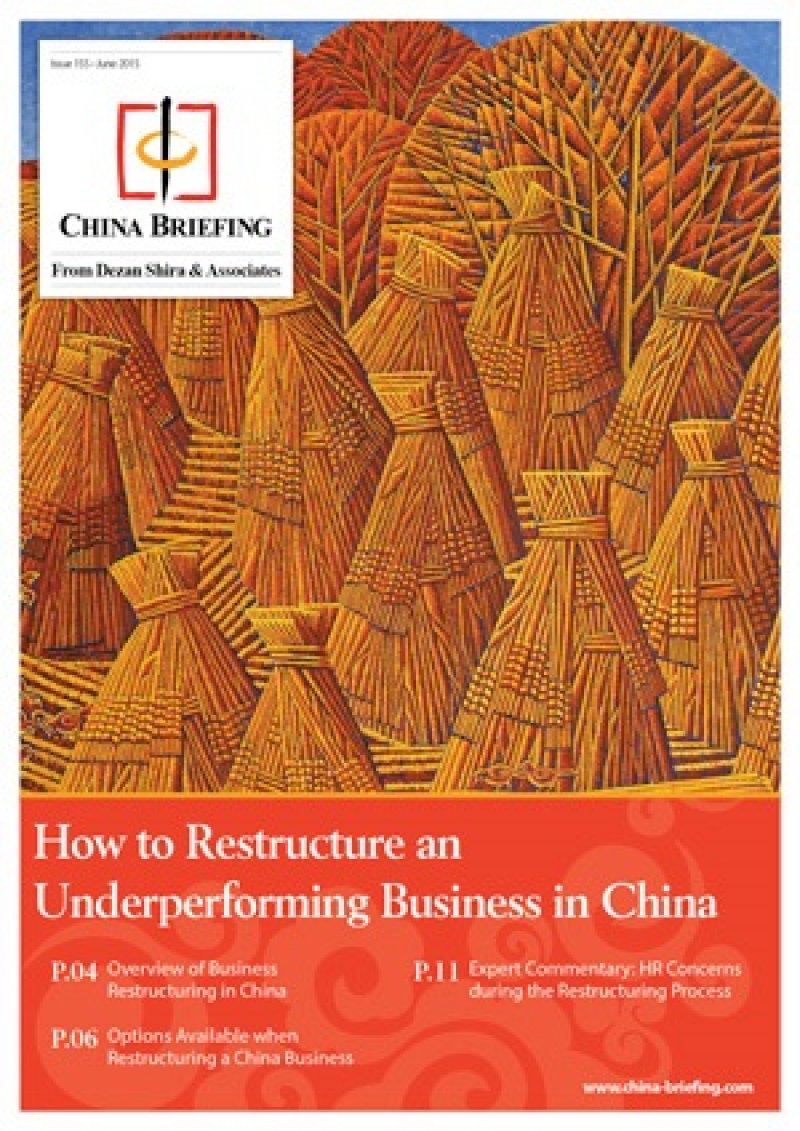China Market Watch: Suspension of Investment Company Establishment and Smart Manufacturing in Shanghai
Hit on China’s Financial Sector: China Suspends the Approval of Investment/Fund Management Companies
In order to crack down on illegal fund raising activities and restore the order of China’s financial market, the Chinese government has decided to restrict the approval of investment related registration applications nationwide starting January 12. The restrictions implemented differ per city and district. For example, Beijing has already suspended the registration of all companies whose business scope contains words such as “investment,” “capital & fund,” “equity investment,” and “finical management.” The officer of the Administration for Industry and Commerce (AIC) stated that currently the length of this suspension period remains unclear.
On January 21, the Shanghai FTZ started to impose restrictions on the approval of three types of companies: investment management companies, assets management companies and finance lease companies. Specifically:
- The shareholders of the company (be it domestic or foreign-invested) will be interviewed by the government officer before incorporation;
- Different from the policies in Beijing, it is still allowed to set up consulting companies such as an investment consulting company; and,
- Approvals of finance information service companies and internet finance information service companies are suspended.
However, these restrictions are lifted in certain remote districts in Shanghai including Fengxian district and Baoshan district.
![]() RELATED: Business Advisory Services from Dezan Shira & Associates
RELATED: Business Advisory Services from Dezan Shira & Associates
The Development of Smart Manufacturing in China’s Financial Capital
Shanghai has started to gear up for the development of its smart manufacturing industry. Smart manufacturing, generally defined as the sum of high technology manufacturing industries such as robotics, semi-conductors, 3D printing and medical devices, will become the top priority in Shanghai in 2016. On January 20, some major development zones and districts signed memorandum of understanding (MoU) with the Shanghai Foreign Investment Development Board on attracting foreign investment into the sector.
So far, 9100 foreign-invested manufacturing companies have been established in Shanghai, constituting 25 percent of the total number of foreign companies and roughly one-third of the total FDI in Shanghai. Shanghai is also under the process of building entrepreneurship schools, with the aim of having more than 3,000 high-tech companies by 2020.
China Raises its Minimum Wage Levels by 14 Percent
By the end of December 2015, 27 provinces and regions had released their new minimum wage levels for 2016, with an average raise of 14 percent. Among these, Shenzhen led Chinese cities in monthly minimum wage levels at RMB 2,030, while Beijing has the highest hourly minimum wage at RMB 18.7. An increasing number of provinces have revised their minimum wages in 2015 despite the country’s ongoing economic downturn – only 19 regions adjusted their local minimum wage levels in 2014. Meanwhile, the pace of wage increases has slowed down over the past several years from a minimum wage growth rate of 22 percent in 2011. Minimum wages in China are set at the local level and updated throughout the year. This is done to account for the different standards of living across the country.
|
Asia Briefing Ltd. is a subsidiary of Dezan Shira & Associates. Dezan Shira is a specialist foreign direct investment practice, providing corporate establishment, business advisory, tax advisory and compliance, accounting, payroll, due diligence and financial review services to multinationals investing in China, Hong Kong, India, Vietnam, Singapore and the rest of ASEAN. For further information, please email china@dezshira.com or visit www.dezshira.com. Stay up to date with the latest business and investment trends in Asia by subscribing to our complimentary update service featuring news, commentary and regulatory insight. |
![]()
 Human Resources and Payroll in China 2015
Human Resources and Payroll in China 2015
This edition of Human Resources and Payroll in China, updated for 2015, provides a firm understanding of China’s laws and regulations related to human resources and payroll management – essential information for foreign investors looking to establish or already running a foreign-invested entity in China, local managers, and HR professionals needing to explain complex points of China’s labor policies.
 An Introduction to Doing Business in China 2015
An Introduction to Doing Business in China 2015
Doing Business in China 2015 is designed to introduce the fundamentals of investing in China. Compiled by the professionals at Dezan Shira & Associates, this comprehensive guide is ideal not only for businesses looking to enter the Chinese market, but also for companies that already have a presence here and want to keep up-to-date with the most recent and relevant policy changes.
How to Restructure an Underperforming Business in China
In this issue of China Briefing magazine, we explore the options that are available to foreign firms looking to restructure or close their operations in China. We begin with an overview of what restructuring an unprofitable business in China might entail, and then take an in-depth look at the way in which a foreign company can go about the restructuring process. Finally, we highlight some of the key HR concerns associated with restructuring a China business.
- Previous Article China’s Economy and Trade with ASEAN: the Short and Long Term Outlook
- Next Article A Guide to China’s Free Trade Zones – New Issue of China Briefing Magazine






























